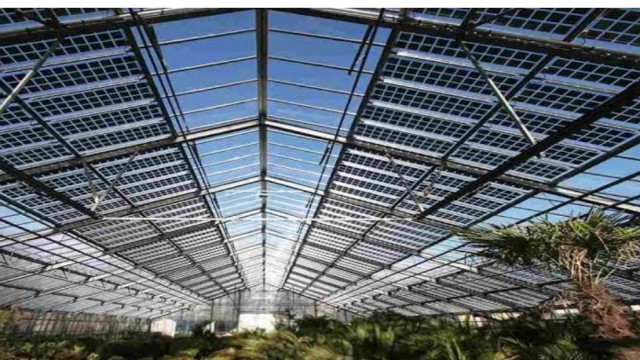High Solar Import Duties Menace RMG Sector’s Green Gait

The country's ready made garment (RMG) industry, conducting export earner, is pushing towards sustainable to meet world environmental agreement . However, growing import duties on solar materials are creating a major hurdle, making rooftop solar installations costly and slowing down the shift to renewable energy. Industry leaders stress that without emergency policy support, Banglades.
The RMG sector, which added over 80% of the country’s foreign earnings, has been investing strongly in renewable energy solutions to shorten carbon emissions. The government target to surge the share of renewable enery to 20% by 2030, up from the current 5%.
Specialist believe that growing rooftop solar facilities could help Bangladesh save around Tk2,500 crore annually by decreasing fuel imports. Meanwhile , industry workmen says that the high tax fardel on solar imports is losing investment and slowing down large-scale adoption.
Cost Pressure from High Import Taxes
Building up industrial rooftop solar systems include at least 13 different elements , involving solar panels, inverters, batteries, and mounting structures. While only 1 % tax bears on panels and inverters. On the other hand many other critical elements are taxed on as high 62% to 77%, making fixing costs importantly higher than in besides countries.
As reported by industry assumed , solar project costs in country are 30% to 50% higher than in India, making local manufacturers less competitive in whole world .
Industry Leaders Voice Concerns
In opinion of NZ Textile Limited, which is one of the largest textile mills in the country, has already set up 10 megawatts of solar capacity. the highest among local textile factories and plans to increase it to 30 megawatts.
Managing director of its , Saleudh Zaman Khan, said: > “Taxes on overseas sourced solar equipment have increase our costs by more than 30%. A work that would cost Tk2 crore in India ends up costing us Tk3 crore here. This additional burden limits our ability to race internationally.”
As per as same , Fatullah Fashions Limited, a USGBC platinum-certified green garment factory in Narayanganj, is targeting for net-zero carbon emissions within five years. Its managing director, Fazlee Shamim Ehsan, said:
> “By manufacturing electricity through solar, we save many foreign currency. The government should appreciate such initiatives by reducing import duties and providing subsidies
Financing Hurdles and Policy Gap
Though central Bank has set up a green financing fund lending low-interest loans for renewable projects, investors complain about complex procedures, lengthy approvals, and inadequate financing support.
In addition to the frustration, fossil-fuel-based private power producers enjoy full import duty exemptions (except for a 5% VAT) under a National Board of Revenue (NBR) circular, while renewable energy users are excluded from such benefits a policy contradiction that industry leaders find alarming
Call for Policy Reforms
Industry stakeholders utter that Bangladesh must think again on its tax policies to meet its renewable energy targets and standstill competitive in global markets. Their key recommendations include:
Reduce high import duties on solar equipment
Giving subsidies and tax incentives to boost renewable investments
Easing access to green financing and simplifying approval processes
Make ensure cost competitiveness with regional rivals like India and Vietnam
Specialist warn that without these reforms, Bangladesh may fall lack behind in the global green transition potentially hurting exports, as international buyers increasingly demand sustainable supply chains.






Please comments here: